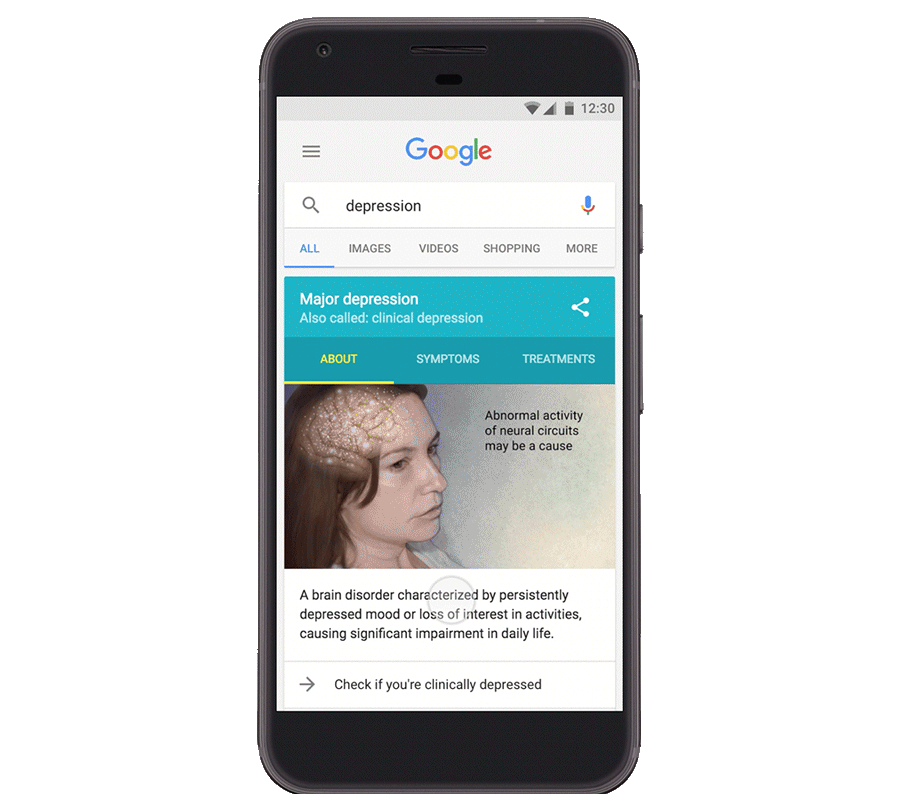Feeling depressed? Google can diagnose you

“Google it” has become a quick and easy way to find answers for seemingly any question. Now those potentially suffering from depression may find a helpful resource in the search engine.
People who search “depression” on their mobile phones now have the option to take a clinically validated nine-question survey to test whether they’re depressed – which then recommends treatment resources.
Ken Yeager, PhD, clinical director of the Stress, Trauma And Resilience (STAR) Program at The Ohio State University Wexner Medical Center, hopes the ease of a Google search will encourage people to seek help sooner than they might have otherwise.
“With the prevalence of depression in the U.S., we all know someone who is or has been depressed. We need to acknowledge this as a brain disease and begin treating it as a disease,” says Yeager.
According to the National Alliance on Mental Illness, about one in five adults in the United States suffers from mental illness. Youth suicide rates continue to rise, to the point of being the third leading cause of death for those who are 10 – 24 years old.
How the Google assessment works
To take the screening questionnaire, called PHQ-9, follow these steps:
- Open the Google app or go to google.com on a mobile device
- Search “depression”
- You’ll see a color-shaded “knowledge panel” about depression
- Click the link to “check if you’re clinically depressed”

The assessment is anonymous and aims to connect people who are potentially depressed with mental health resources.
Yeager says the key is not just providing the results of the test, but giving people local resources to help them get treatment.
If the assessment determines a person may be clinically depressed, Google provides links to the National Suicide Prevention Lifeline and to the National Alliance on Mental Illness.
“Most depressed persons understand they are depressed. Now that you have a diagnosis, what are you going to do with it? Anyone with any health diagnosis needs more education,” explains Yeager.
Are there risks of people self-diagnosing?
Yeager says the survey can bring about false positive results, so it is important for individuals to see a mental health practitioner who can determine the extent of depression and the most appropriate treatment.
He says there is also a risk to people who are truly clinically depressed.
“It could be bad because it supposedly confirms already difficult circumstances and may lead to the individual feeling helpless or lost as to what to do next. That’s why the help of a mental health professional is so important.”
Overall, though, he sees this as a good new option for those suffering from a mental illness.
“This is shining a light on a topic that desperately needs attention,” Yeager says.




